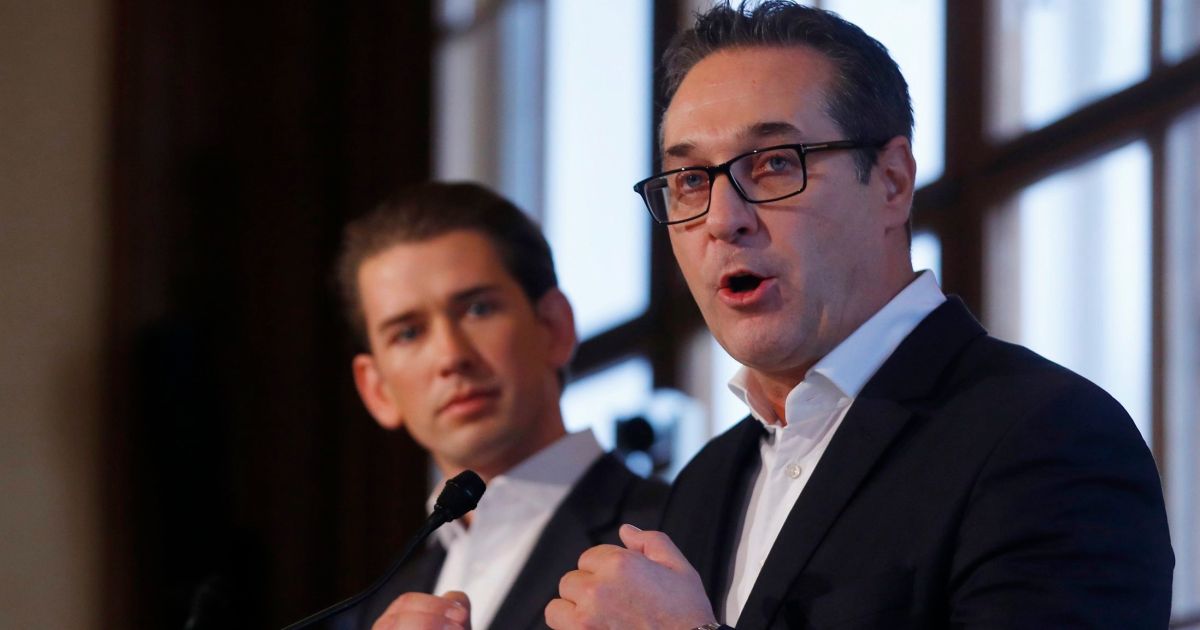
Hijab Ban: As the Far Right Targets Muslims, Austria’s Response Is an Ugly, Complicit Silence
This op-ed by Bridge Initiative Senior Research Fellow Farid Hafez originally appeared in Haaretz.
The new Austrian government is today one of several coalition governments in Europe with a far right populist party in a position of power. At the beginning of 2018 it seemed that the coalition was potentially fragile: it was constantly queried and challenged by civil society groups and parliamentary figures after a series of incidents which appear to confirm the clear and present danger of inviting a party with neo-Nazi roots into government.
The far-right Freedom Party, that vowed to “protect” Jews against the alleged new anti-Semitism stemming from Muslims, has confronted with anti-Semitic statements from their rank and file functionaries on a weekly basis.
A dubious raid on the security services investigating far-right groups, orchestrated by the Freedom Party interior minister will now be investigated by a parliamentary committee, after the outrage reached the level of the president himself.
Criticism has also come from inside the Freedom Party’s own house, but not on the subject of bigotry. The new government plans to severely cut social services in the health sector, a move that will primarily affect the working poor.
Such a move would antagonize large parts of the Freedom Party’s electorate, which moved over from the Social Democratic Party to vote for the far right precisely because they believed they would be looked after.
Amidst these numerous and legitimate attacks, and a neo-liberal economic program that is particularly problematic for the far-right’s base, it was time for a diversionary maneuver.
The Freedom Party is indeed the master of pushing an imagined scapegoat to shift the public’s focus from territory in which its own competence and its obedience to political norms has been shown to be deeply broken. It’s used this tactic for three decades and now it seems the governing People’s Party under Chancellor Sebastian Kurz, is going to co-opt that approach.
Back in the 1990s, the populist right’s most popular designated scapegoats were Turks, Eastern Europeans and blacks, but for several years now it is first and foremost Muslims. And now there is a further “refinement” of the target: Muslim children and young girls.
The Austrian government has proclaimed its intention to ban the wearing of the the hijab for girls in local government-run kindergartens up to the end of elementary school (age 10). Obviously, this is a non-issue, since normally Muslim girls at that age do not wear the hijab anyway.
The ban will be introduced under the rubric of a “child protection law” to be drawn up later this year, according to the Freedom Party education minister Heinz Fassmann, and he anounced it would function as a “symbolic act” to protect Austrian culture from some Islamic influences.
Chancellor Kurz himself declared that the goal was “to confront any development of parallel societies in Austria,” using a term he and the far-right Freedom Party favor to describe what they see as a threat posed by some Muslims to mainstream culture.
Strangely enough, that same education minister declared unequivocally in an interview after assuming office that he would stop lobbying for a Muslim headscarf ban, as he has done in the past. Rather, he said he sought to formulate this in a “more diplomatic way”, using the argument of the need for public secularism by civil servants.
Depressingly enough, the social democratic “opposition” criticized the move as not forceful enough; they opined that a comprehensive integration package was necessary, and some even suggested the ban include girls up to the age of 14.
It is no surprise that the education minister, and indeed, the Chancellor, both used language that appears relatively neutral. That is a ruse: to hide discriminatory legislation behind the language of “inclusion” and unity.
In response, Austria’s parliamentary constitutional committee determined that such a regulation could only be constitutional and respect religious freedom, if it was imposed on all religious communities in Austria alike. Hence, it warned that also young Jewish boys who wear the kippah could be affected.
Immediately, the government hurried to emphasize that Jews would not be affected. That fits with the Freedom Party’s somewhat failing efforts to deny its anti-Semitism while moving its focus squarely on anti-Muslim prejudice.
The government is using the trick of a “Child Protection Act” to sell this regulation of the female Muslim body rather than a law regulating religious attire in general, which would have had to cover the kippah, Sikh turbans and crosses as well.
The twisted logic that the government is trying to present is that they are, in fact, liberators of Muslim women: they are the white Christian men freeing Muslim women from the hijab, which signifies the oppression of Muslim patriarchy, based on the racist assumption of a hypersexual male Muslim body.
Read the full article here.

 Search
Search